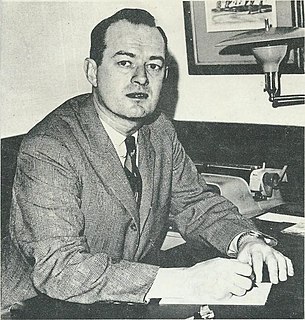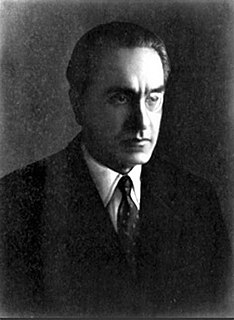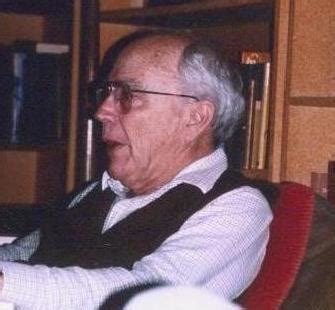A Quote by Alfred North Whitehead
A philosopher of imposing stature doesn't think in a vacuum. Even his most abstract ideas are, to some extent, conditioned by what is or is not known in the time when he lives.
Related Quotes
That he liked to think of himself as a philosopher. That he questioned all things, even the most simple, to the extent that when someone passing him on the street raised his hat and said, 'Good day,' Litvinoff often paused so long to weigh evidence that by the time he'd settled on an answer the person had gone on his way, leaving him standing alone.
A man's knowledge may be said to be mature, in other words, when it has reached the most complete state of perfection to which he, as an individual, is capable of bringing it, when an exact correspondence is established between the whole of his abstract ideas and the things he has actually perceived for himself. His will mean that each of his abstract ideas rests, directly or indirectly, upon a basis of observation, which alone endows it with any real value; and also that he is able to place every observation he makes under the right abstract idea which belongs to it.
Men are not philosophers, but are rather very foolish children, who, by reason of their partiality, see everything in the most absurd manner, and are the victims at all times of the nearest object. There is even no philosopher who is a philosopher at all times. Our experience, our perception is conditioned by the need to acquire in parts and in succession, that is, with every truth a certain falsehood.
It [also] lives on its history, now, to some extent: its achievements [ of the Commonwealth] in Rhodesia and South Africa, which were enormous. And they'll live on that for some time, I guess. And there is still - I'm out of touch with it now, of course - but I still think there is a degree of cooperation at the economic level, to some extent, with the more developed countries helping the less developed. How substantial that is now, I simply am not versed.
I have always taken as the standard of the mode of teaching and writing, not the abstract, particular, professional philosopher, but universal man, that I have regarded man as the criterion of truth, and not this or that founder of a system, and have from the first placed the highest excellence of the philosopher in this, that he abstains, both as a man and as an author, from the ostentation of philosophy, i. e., that he is a philosopher only in reality, not formally, that he is a quiet philosopher, not a loud and still less a brawling one.
Why has mankind had such a craving to be imposed upon? Why this lust after imposing creeds, imposing deeds, imposing buildings, imposing language, imposing works of art? The thing becomes an imposition and a weariness at last. Give us things that are alive and flexible, which won't last too long and become an obstruction and a weariness. Even Michelangelo becomes at last a lump and a burden and a bore. It is so hard to see past him.







































